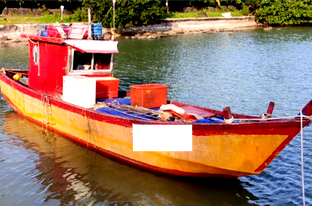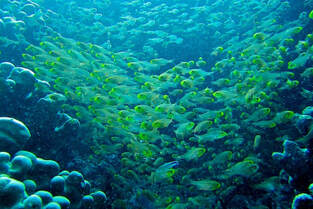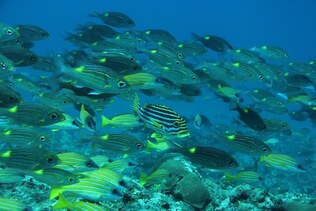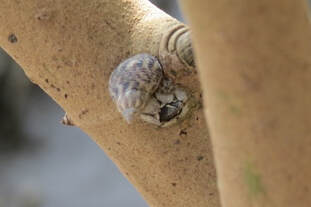Our marine ecological research includes biogeography, macroecology and community ecology, from inter-tidal systems to reefs, both along the mainland coast of India as well the Andaman and Nicobar Islands, and Lakshadweep archipelago. We are involved in large collaborative programmes as well as primary research within the lab.
Research programmes
Marine Integrated Science for the Tropics (MIST)

With funding from the Indian Institute of Science, we plan to initiate long term integrative research in the Andaman and Nicobar Islands through the MIST programme. This brings together a few ecologists, and physical and chemical oceanographers at IISc and provides us funding to purchase a (very) basic research vessel, equipped with a CTD, ADCP, water sampler, etc. We aim to integrate physico-chemical parameters at the sites where we collect data using surveys, ARMS, etc.
Collaborators: P. Vinayachandran (CAOS, IISc), Ramananda Chakrabarti (CEaS, IISc), Deepak Subramani (CDS, IISc), Maria Thaker (CES, IISc), Sumanta Bagchi (CES, IISc)
Collaborators: P. Vinayachandran (CAOS, IISc), Ramananda Chakrabarti (CEaS, IISc), Deepak Subramani (CDS, IISc), Maria Thaker (CES, IISc), Sumanta Bagchi (CES, IISc)
Long-Term Ecological Observatories

The Ministry of Environment, Govt of India has launched a national Long Term Ecological Observatory (LTEO) across six sites in India including the Andaman and Nicobar Islands. While this covers a range of terrestrial ecosystems, we will be monitoring marine ecosystems in the A&N islands. This research theme includes monitoring of reefs, reef fish, sea grass and sea turtles, and several of us are collaborators on the project.
Collaborators: Naveen Namboothri (Dakshin Foundation, PI), Kartik Shanker (CES, IISc), Rohan Arthur and Elrika D'Souza (NCF), Vardhan Patankar (WCS), S. Venu (Pondicherry University)
Collaborators: Naveen Namboothri (Dakshin Foundation, PI), Kartik Shanker (CES, IISc), Rohan Arthur and Elrika D'Souza (NCF), Vardhan Patankar (WCS), S. Venu (Pondicherry University)
Autonomous Reef Monitoring Systems

These are standardized passive 3D collectors to sample encrusting (corals, algae) + motile (crustaceans, mollusks, polychaetes) organisms + understudied cryptofauna (microbial, prokaryotic). We have current deployed some ARMS units in the Andamans, courtesy a collaboration with Archana Anand and David Baker at HKU. We have plans to expand this work over the next year or two.
Research themes
Mixed species foraging in reef fish

Following a conversation with Umesh Srinivasan, we thought it might be interesting to extend our work on mixed species foraging to reef fish. To our amazement, we found that precious little work had been done on the subject. Anne Theo initiated her PhD on mixed species reef fish groups in the Lakshadweep and has observations on more than 1800 groups across 4 islands, both on the reef and in the lagoon. Her work explores broad scale clusters, drivers of hetero-specific grouping and community level patterns. She has some very interesting results that we expect to publish in the near future. Bharat Ahuja will take this work forward in the Andaman and Nicobar Islands.
Phylogeography of marine fauna
 Littorina, DK Bharti
Littorina, DK Bharti
We are interested in understanding the factors that influence genetic diversity within populations of a species through the process of dispersal. Broadly, there are two main external factors that influence successful dispersal - how patterns of ocean currents help in moving animals, and how habitat distribution influences survival of dispersers. Apart from these, there are internal factors - species life-history traits that can influence dispersal and population connectivity. DK Bharti is studying gastropods, using molecular tools to measure genetic connectivity between populations spread across the west coast of India. She is focussing on two important groups of marine snails‐ the sub‐family Littorininae which occur in rocky shores and mangrove intertidal habitats, and the family Conidae, which occur in sub‐tidal habitats. We have recently expanded this work to sharks and other taxa.
